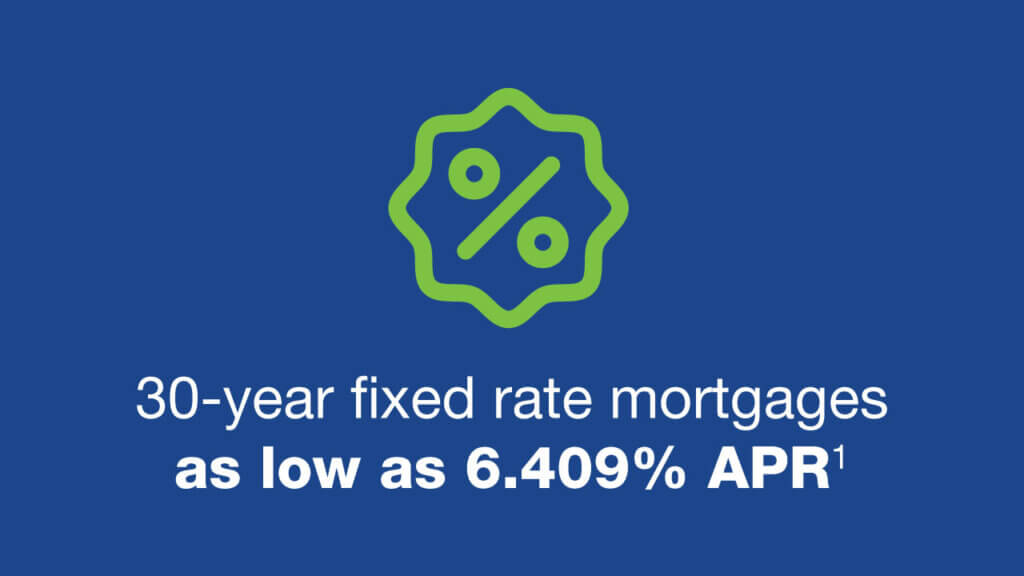Can you see yourself living amongst the wide open spaces of rural California and Nevada? A U. S. Department of Agriculture (USDA) home loan can help buyers like you make a purchase with no down payment.
USDA Home Loans


We’re here to help you meet your homeownership goals! We also prioritize speed for clients, with an average turnaround of only 22 days from application completion to ready-to-close for purchase loans!1

What is a USDA Home Loan?
A USDA loan is a government-backed home loan that allows a borrower to purchase property with no money down. That’s right. No down payment. Of course, borrowers need to fall within certain income thresholds (more on that below), and the property must be located in a designated Rural Housing zone to qualify (eligibility maps available through the button below).
Another benefit to this loan option? Home buyers can borrow up to 102% of the home’s value to help cover closing costs. Greater Nevada Mortgage will work with you to determine whether this federal program is right for your next home purchase.
Loan Amounts
Loan amounts up to the standard 2025 conforming limit of $806,500, or as high as $1,209,750 in higher cost areas.
Interest Rates
View our current USDA loan rates below.
Repayment Terms
Standard loan term is 30 years.
Down Payment
No down payment required.
Property Type
Use for a new home purchase or refinance in eligible rural areas.
Eligibility
USDA loan eligibility requirements apply, including a minimum 640 credit score.
Apply for a USDA Home Loan
If you are considering purchasing a property in a designated rural area in California or Nevada, Greater Nevada Mortgage can help you realize your dream. See how.
Common Questions About USDA Home Loans
-
What are the qualifications for USDA home loans?
Because loans from the USDA are so specific to the type of property they cover, there are a few key things to know about how these mortgages work. In the section below, we discuss which borrowers and property types are eligible for USDA loans.
- Location: The USDA has created specific Rural Housing zones for these types of loans. You can explore their eligible area map, and your dedicated Mortgage Consultant can help you further determine eligibility when you apply.
- Residency: USDA loans are for primary residences only. They are not designed for second or vacation homes.
- Income: A borrower’s income can not exceed 115% of the median household income for the area in which the borrower is considering purchasing.
- Credit score: Generally, borrowers should have a minimum 640 FICO credit score, but those with scores between 600 and 640 may go through more thorough manual underwriting to qualify.
-
What’s the difference between USDA and conventional home loans?
Unlike conventional loans, USDA loans must be for primary residences only, and the property must fall within a designated Rural Housing zone. Loans can be up to 102% of the home’s appraised value or sale price, and no down payment is required. Buyers must fall within a certain income threshold to qualify and there is no requirement to purchase additional private mortgage insurance (PMI).
-
What is the difference between a USDA loan and FHA loan?
USDA loans differ from FHA loans in several key ways. While both are backed by governmental agencies, FHA loans limit the amount you can borrow for your home purchase. Also, during the appraisal process, homes being considered for USDA eligibility must meet certain zoning requirements, whereas FHA loans require the property to meet certain Housing Urban Development (HUD) standards. USDA loans do not require down payments, while FHA loans can require up to 3.5% down. In both cases, the buyer may be responsible for paying closing costs, but with a USDA loan, buyers may borrow enough money to cover the closing costs above and beyond the purchase price. Learn more about the different types of home loans offered at Greater Nevada Mortgage.
Pros and Cons of a USDA Home Loan
- Buyers can borrow up to 102% of the home’s value to cover closing costs
- No down payments are required
- Designed for lower-income families with higher credit scores
- No prepayment penalty
- Can only be used for qualifying rural properties as a primary residence
- Maximum income limits do apply

Everyone Deserves a Home
According to the National Alliance to End Homelessness, over 8,600 Nevadans experience homelessness on any given night. GNM’s Keys to Greater program donates a portion of the revenue from every new mortgage or refinance to community nonprofit organizations that address homelessness, and since launching in 2021, over $206,000 has been donated!

Ready to Apply?
Follow these 3 simple steps below and our team can help see if a USDA loan is the right fit for your goals.
Calculate What You Can Afford
See how much you can afford to borrow on your home purchase with our mortgage calculator.
Submit Your Application
It’s quick. It’s easy. It’s online. Plus, we have a mortgage documents checklist so you know what information to gather.
Let’s Chat
All your home loan questions are answered by your dedicated Mortgage Consultant and their team as you learn about what options work best for your goals.
1Annual Percentage Rate (APR) is based on a loan amount of $450,000 at 80% Loan-to-Value with a credit score of 700 for conforming loans. Rates and fees are subject to change without notice. Membership with Greater Nevada Credit Union is required prior to loan funding, which is open to anyone living or working in any of Nevada’s 17 counties and members of their immediate family. Average purchase loan turnaround time is based on application completion to final approval, with all required conditions and guidelines being met awaiting the Close of Escrow date, for April 2025. This is not a guaranteed timeframe for all loan applications. Each loan transaction is different, and individual turnaround times will vary.